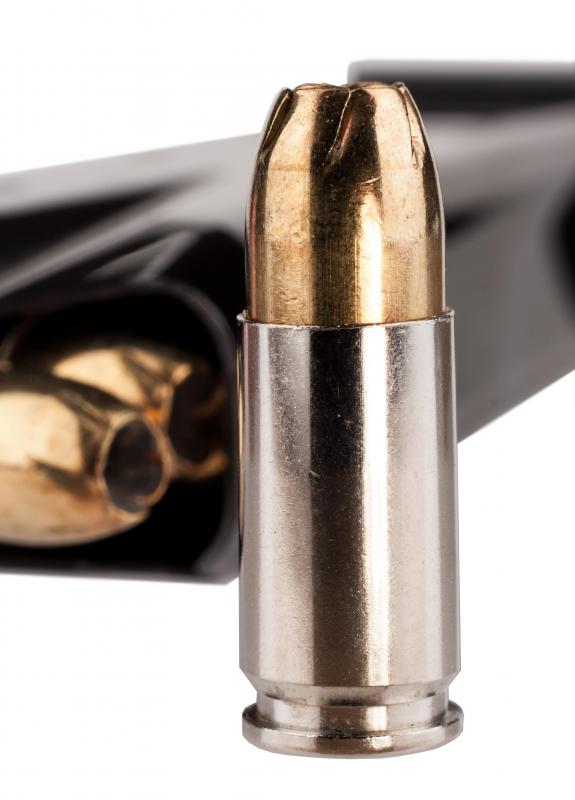At WiseGEEK, we're committed to delivering accurate, trustworthy information. Our expert-authored content is rigorously fact-checked and sourced from credible authorities. Discover how we uphold the highest standards in providing you with reliable knowledge.
How do I Become a Ballistics Expert?
To become a ballistics expert, also called a firearms examiner, there are a variety of different requirements that must be met. Most employers require candidates to at least have a bachelor's degree in forensic science or criminology. In some instances, however, candidates with degrees in engineering or metallurgy may be considered for employment.
The specific requirements that need to be met for this type of job depend in large part upon where a person lives because states, regions, and countries all tend to have different educational and experience requirements for certification. Often, ballistics experts are forensic science technicians who have chosen to specialize in this specific area of the field. Most of the jobs that are available are with regional and national government agencies, though there are some independent employers.

For individuals who want to become a ballistics expert, it is important that they try to obtain some direct experience working with firearms in an official capacity before looking for a job. One of the best ways to do this is by securing an internship position while attending college. In addition to having a college degree, there is also an extensive amount of training that ballistics experts need in order to find a job.

As a general rule, training must be quite extensive in order to become a ballistics expert. Some training that must be completed includes learning about ammunition, gunpowder, and primer residue, and firearms assembly. One of the most important areas of knowledge that a ballistics professional can have is how to take firearms apart and how to put them back together. Candidates who do not possess this knowledge will have a very difficult time finding a job.

Understanding how to make bullet comparisons is another important aspect of trying to become a ballistics expert. This may involve analyzing fired and unfired bullets using microscopes and digital photographs. In some cases, these individuals may be asked to make basic observations about firearms evidence on the spot, so having a good eye for details is critical.

It is also important for these professionals to have the ability to speak intelligently about their work and the procedures that they go through when analyzing evidence because they will probably have to serve as an expert witness in courtrooms on occasion. Expert witnesses need to have a professional demeanor and must be able to articulate their thoughts clearly. They must also present themselves in a manner that jury members find easy to understand and relate to; otherwise, they will not be very effective at supporting an attorney's case.
AS FEATURED ON:
AS FEATURED ON:















Discuss this Article
Post your comments